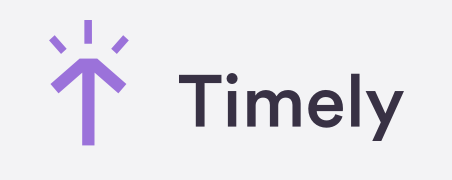Approaching Conflict Resolution at Work with Relationship Intelligence
Enhance workplace harmony by leveraging relationship intelligence for conflict resolution. Explore how Insightful's workforce monitoring solutions and workplace analytics can guide proactive conflict management.
Speak with a Productivity Expert
Give us 30 minutes and we’ll show you how we can help you achieve better results.
Workplace conflicts are inevitable. A study by CPP Inc. found that employees spend roughly 2.1 hours each week dealing with conflict, translating to nearly a full day of productivity lost per month.
The causes of these conflicts range from task disagreements and personality clashes to communication mishaps, and they can significantly disrupt productivity, cultivate a negative work environment, and potentially drive talent away.
However, with strategies that leverage relationship intelligence and business-oriented employee observation tools, these disturbances can be efficiently managed and resolved.
What is Relationship Intelligence?
Relationship intelligence refers to the comprehension and application of interpersonal dynamics within a professional setting. It encompasses the understanding of individual motivations, behavior patterns, communication styles, and the network of relationships within the workplace.
This deep understanding can serve as an invaluable tool in identifying potential sources of conflict and implementing effective solutions.
Enhancing Conflict Resolution: Tools and Strategies
In order to foster a harmonious work environment, you need to employ tools and strategies that effectively address conflicts. This section delves into the key components of enhancing conflict resolution in the workplace.
Harnessing Relationship Intelligence: By leveraging tools that promote relationship intelligence, employers and HR can gain invaluable insights into the interpersonal dynamics of the workplace. This understanding allows them to detect potential conflicts early and address them proactively.
Open Communication: Encouraging an environment where employees feel safe to voice their concerns, disagreements, and suggestions can help preempt potential conflicts. Effective communication can be achieved by understanding and mirroring the communication style of the individual, a strategy rooted in relationship intelligence.
Mediation: In situations where conflicts have escalated, mediation conducted by a neutral third party can facilitate constructive dialogue and help find a resolution.
Promotion of a Positive Work Culture: Building a workplace culture that encourages respect, cooperation, and understanding can preemptively mitigate potential conflicts.
Leveraging Tools like Insightful
Enhancing relationship intelligence and improving conflict resolution can be facilitated by the use of digital tools. Insightful, for example, is a remote worker tracking tool that offers behavioral insights and hard evidence to guide conflict resolution.
Insightful enables employers and HR to monitor team dynamics and gain insights into individual behavior and communication patterns. It offers analytics on employee interactions and relationships, which can provide a predictive understanding of potential conflict hotspots.
Workplace Conflicts: A Closer Look
Task Conflicts
Task conflicts typically revolve around disagreements concerning work responsibilities or goals. For example, a sales team might envision certain features for a new product, while the product development team has a different perspective.
Approach:
Addressing task conflicts effectively requires clear communication and an understanding of each team's standpoint. Employers can start by creating a platform where each team can present their thoughts, justifications, and reasons behind their proposed solutions or goals. Once all perspectives are on the table, facilitate a discussion to find common ground, identify areas of compromise, and work towards a solution that serves the larger organizational goal.
Utilizing data from a tool like Insightful can also provide a deeper understanding of the communication dynamics between teams. By analyzing this data, employers can identify potential friction points, guide the discussion more effectively, and build a resolution that aligns with the team's collaborative patterns.
Interpersonal Conflicts
Interpersonal conflicts are often rooted in personal disagreements or personality clashes, not directly related to work tasks. They may arise from differing social behaviors, work styles, or communication preferences.
Approach:
Employers should approach these conflicts with empathy and neutrality. First, separate the individuals involved to understand their feelings, perspectives, and the issues at hand. The goal here is not to decide who is right or wrong, but to comprehend the underlying issues causing the conflict.
Once the issues are understood, employers can initiate a mediated conversation between the parties involved. The focus of this conversation should be on understanding each other's perspectives, finding common ground, and agreeing on a path forward that respects individual differences. Employers can also consider workshops or coaching sessions to help employees develop better interpersonal skills and understanding.
In addition, using a tool like Insightful helps employers identify and understand the behavioral dynamics at play. Understanding these dynamics can inform the approach to resolution and can even help preempt future conflicts.
Process Conflicts
Process conflicts involve disagreements about the methods and strategies used to complete work. For example, two project managers might have conflicting views on the best project execution methodology.
Approach:
To address process conflicts, employers can create a space where each party involved can articulate their preferred methodologies, explain their benefits, and detail potential downsides. Following this, a group discussion can help understand the applicability of each method to the project at hand and negotiate a balanced approach that combines the strengths of both methods.
Utilizing data from Insightful can further help employers. By monitoring team interactions and communication, employers can get a clearer picture of the team's working style, preferences, and collaboration patterns. This can inform the decision-making process and help devise a resolution that is not just balanced but also aligned with the team's work dynamics.
In summary, relationship intelligence provides a solid foundation for conflict resolution in the workplace. With a keen understanding of employee dynamics and the aid of digital tools to monitor employees who work remotely from home like Insightful, HR professionals and employers can proactively address conflicts, promote a harmonious work environment, and ultimately enhance overall productivity.
.svg)
.jpg)































.png)
%20(1)%20(1).png)



%20(2)%20(1).png)